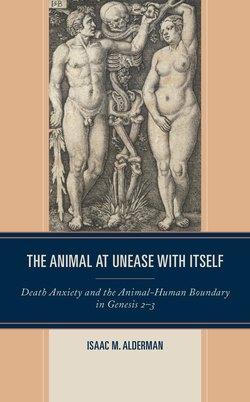Читать книгу The Animal at Unease with Itself - Isaac M. Alderman - Страница 7
На сайте Литреса книга снята с продажи.
The Cognitive Turn
ОглавлениеThe study of the Bible is heavily influenced by other disciplines, even if it often takes a good deal of time before insights from other scholarly approaches can make meaningful inroads. Literary methods such as Marxist and feminist readings, for example, only began to be significantly used by biblical scholars two decades after they became commonplace in the study of other literature.[1] With this in mind, it might not seem surprising that biblical studies lags behind other fields within the humanities in utilizing and adapting insights from various cognitive approaches. Within the last decade, however, there have been a few notable exceptions and much more material is being produced. Many of these efforts have greatly influenced this project with regard to method, if not necessarily direct content. One of the first and most important examples is Ellen J. Van Wolde’s 2009 work which uses cognitive linguistics and cognitive relationality to examine several texts from the Hebrew Bible.[2] More recently, scholars have produced several books, articles, and edited volumes that attempt to draw from the various approaches, with a particular focus on rituals. Here we find important texts such as Cognitive Science and the New Testament and Mind, Morality and Magic: Cognitive Science Approaches in Biblical Studies, which seek to understand religion and religious practice primarily through the study of the cognitive constraints that shape them, largely directed at examining the origins of religious thought, the transmission and perseverance of these ideas, and religious acts and rituals.[3]
The work of several scholars will be discussed further in this chapter, which will first examine the emergence of cognitive science, the cognitive turn in the humanities, and then the cognitive science of religion. I will also introduce two important aspects of cognition, the theory of mind (mentalizing) and agency detection, which are important to the discussion of human embodiment and the intuitive dualism that impacts religion and religious texts discussed in later chapters. Finally, I will cite examples of how insights from cognitive science are helping to better understand religion, and religious texts and practices.
